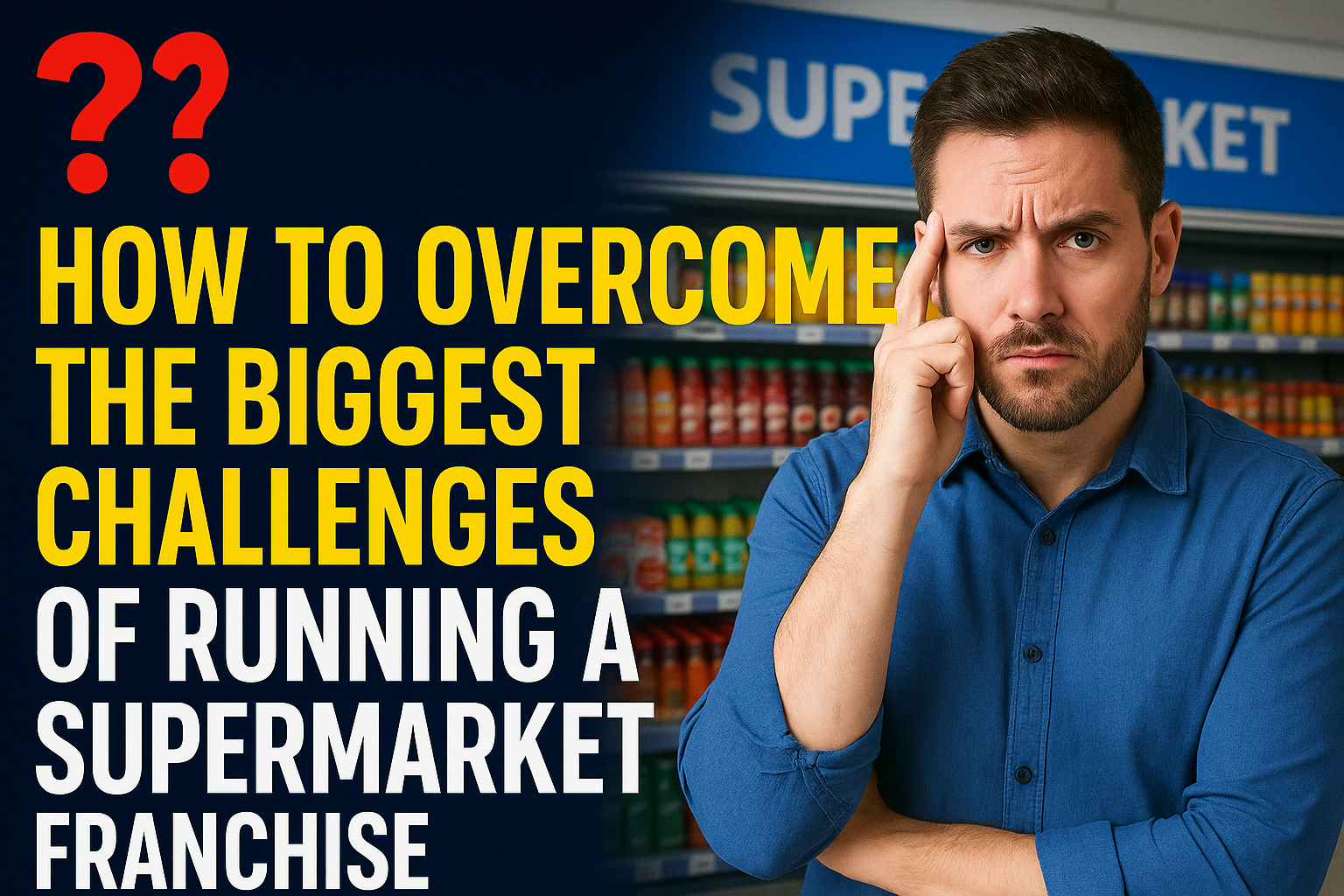Introduction: Why Running a Supermarket Franchise Isn’t Always Easy
Opening a supermarket franchise may sound like a dream—brand recognition, proven systems, and support from the parent company. But the reality? Running a franchise comes with its own set of hurdles. If you’re an entrepreneur looking to dive into this competitive world, it’s crucial to prepare for what’s ahead.
From tight profit margins to meeting corporate standards while keeping customers happy, you’re bound to encounter some bumps. But here’s the good news: every challenge has a solution, and with the right mindset and strategies, you can thrive.
Understanding the Common Challenges Franchise Owners Face
Let’s break down the biggest obstacles most supermarket franchisees experience:
High Operational Costs
Running a supermarket involves considerable expenses—rent, utilities, inventory, salaries, and royalties to the franchisor. These costs can eat into your profits quickly if not managed properly.
Fierce Local Competition
Supermarkets often operate in highly competitive markets where big-box retailers and discount stores fight for customer attention and loyalty.
Managing Supply Chain Disruptions
From supplier delays to global crises, maintaining a steady supply of products is a constant challenge.
Recruiting & Retaining Quality Staff
The retail sector is notorious for high turnover. Finding dependable employees and keeping them motivated can be tough.
Meeting Franchise Standards vs. Local Needs
While you need to stick to corporate guidelines, your local customer base may have preferences that don’t exactly align with those standards. Striking a balance is key.
Proven Strategies to Overcome These Challenges
Now that we’ve outlined the challenges, let’s explore actionable solutions:
Smart Financial Planning and Cost Management
Start by creating a realistic budget that accounts for fixed and variable costs. Use accounting software to track expenses and forecast cash flow. Negotiate better rates with suppliers and look for ways to reduce energy consumption to cut utility costs.
Standing Out from the Competition
Focus on providing a better customer experience than your competitors. This could include exceptional service, loyalty programs, or offering unique, locally sourced products your rivals don’t carry.
Building a Resilient Supply Chain
Diversify your supplier base so you’re not overly reliant on a single source. Build good relationships with suppliers, and keep extra stock of fast-moving or critical items when possible.
Hiring, Training, and Keeping the Best Employees
Offer competitive wages, create a positive work culture, and invest in employee development programs. Recognise and reward your team regularly to boost morale and reduce turnover.
Balancing Franchise Guidelines with Customer Preferences
Understand your local market through surveys, feedback, and observation. Work with your franchisor to adapt promotions or product selections within allowed limits to suit your community better.
Real-Life Examples of Successful Supermarket Franchisees
Take inspiration from owners who’ve succeeded despite the odds. For example, some supermarket franchisees have introduced local produce sections or hosted community events to boost loyalty. Others have embraced online delivery to stay relevant in the digital age.
The Importance of Community Engagement
A strong connection with the community can set you apart. Sponsor local events, partner with nearby schools, and support charities. When customers see you as more than just a business, they’re more likely to shop with you.
Using Technology for Efficiency and Growth
Technology can help streamline operations, reduce costs, and improve customer experience. Invest in inventory management systems, self-checkout kiosks, and online ordering platforms to keep up with changing consumer expectations.
FAQs About Running a Supermarket Franchise
Q1: How much capital do I need to start a supermarket franchise?
A: It varies widely but expect anywhere from $100,000 to over $1 million, depending on the brand and location.
Q2: How long does it take to break even?
A: Typically, it takes 2–3 years to reach break-even, but this depends on your market conditions and management.
Q3: Can I choose my suppliers in a franchise model?
A: Usually, the franchisor dictates suppliers, but some flexibility might be allowed for certain products.
Q4: What are the main benefits of owning a supermarket franchise?
A: Brand recognition, a proven business model, and franchisor support are the main advantages.
Q5: How do I handle competition from online grocery stores?
A: Offer personalised service, create loyalty programs, and consider adding an online component to your business.
Q6: What skills are essential for running a supermarket franchise?
A: Leadership, financial management, customer service, and problem-solving skills are crucial.
Conclusion: Turning Challenges into Opportunities
Running a supermarket franchise comes with its fair share of challenges. But by understanding the potential pitfalls and proactively addressing them, you can turn obstacles into opportunities. With smart planning, a customer-first approach, and a willingness to adapt, you can build a thriving business that serves your community while achieving your entrepreneurial goals.




